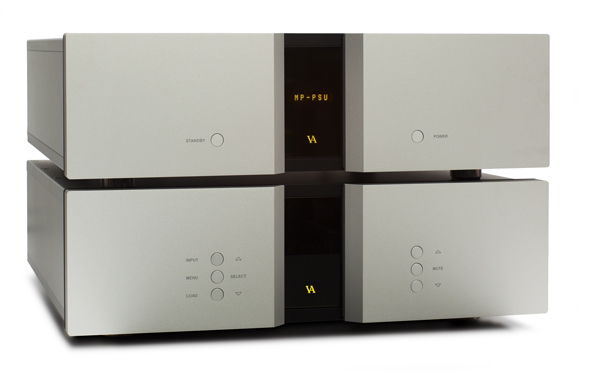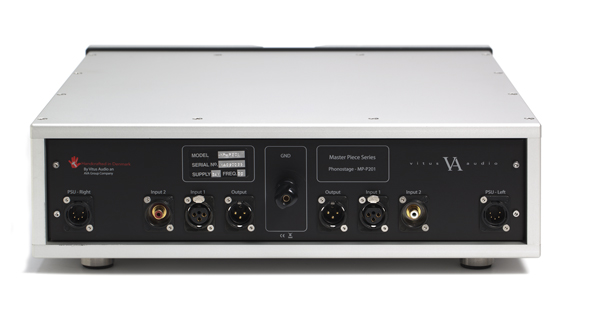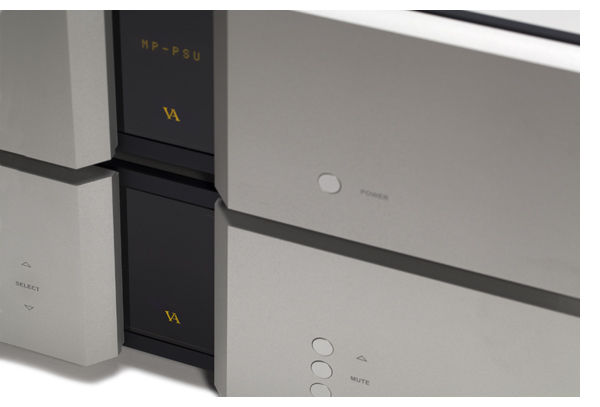Vitus MP-P201 Phonostage
 When I was a kid, my friends would be quick to shout out “infinity” when they spotted the coolest bike, baseball glove, or sneakers. Yet as soon as that word was uttered, another voice rose up and declared “infinity plus one!” Decades later, more than a handful of us have faster bikes and fancier shoes. But we often make similar claims when referring to our audio systems. And the stakes are much higher—at least in the sense that “infinity plus one” now costs a lot more.
When I was a kid, my friends would be quick to shout out “infinity” when they spotted the coolest bike, baseball glove, or sneakers. Yet as soon as that word was uttered, another voice rose up and declared “infinity plus one!” Decades later, more than a handful of us have faster bikes and fancier shoes. But we often make similar claims when referring to our audio systems. And the stakes are much higher—at least in the sense that “infinity plus one” now costs a lot more.
It is always tough assigning value to things we don’t need. Of course, the biggest question with something like the $60k Vitus MP-P201 phonostage is “how much better is it?” Passing the $10k mark for a phonostage means serious high-performance territory. If you don’t have a mega system with an equally mega turntable, don’t even think of blowing this kind of coin on a phonostage. It’s a waste. Competition at this level is fierce, and there are a number of excellent choices in the $10-$15k category. We’ve reviewed such models from Aesthetix, Audio Research, ASR, Burmester, Boulder, Conrad-Johnson, Naim, and Pass Labs. Plus, there are probably another ten excellent models in this range we haven’t covered.
For listeners wanting to venture beyond the barrier at the boundary of the analog universe, what are the options? Surprisingly, quite a few. The Ypsilon YPS100 tips the scale at close to $30k; the Boulder 2008 is even more expensive. Where does the madness end? A $60,000 phonostage is no more realistic to most audio enthusiasts than a $1.2 million Bugatti Veyron is to someone driving a Toyota Camry. Yet these exotic products have customer waiting lists.
On the bright side, you’ll never need to change oil or replace a clutch in the MP-P201. And you won’t need to hunt down rare NOS vacuum tubes. The MP-P201 is a fully solid-state design that, once experienced, will change your thinking about transistors’ capabilities—provided you have the preconceived notion that glass bottles are the only devices that yield untouchable musical performances.
A Little Perspective
Think of the sound of an ace $1,000 phonostage. Musical notes are reproduced, everything is quiet, and a dollop of tonality and dynamics makes you feel warm and squishy about having upgraded. If you made the leap from a basic $200-$400 turntable to a $1,000 unit with a competent phono cartridge, and everything is properly set up, analog enchantment happens. You evangelize about how vinyl is better than digital. The crusade begins.
The next major jump costs two-to-five times the aforementioned amount and includes added flexibility as well as a substantial performance gain (assuming your system is resolving enough to reveal the difference) and added flexibility. Gain and loading more easily adjustable, and multiple inputs might even be present. You’re moving closer to a more realistic picture of the music on your best recordings. The speakers feel more liquid and natural.
Once you cross the $10k line, in general, your speakers begin to boil like a big pot of water into which you drop delectable pasta. Yummy. Music sounds like it should—timbre, texture, low-level detail, dynamics, and bass weight envelop you, and yep, it’s time to upgrade other parts of your system to keep pace with the enhanced analog front end.
Imagine your speakers becoming clouds from which music emerges. Welcome to the MP-P201. Marathon listening sessions with every turntable, tonearm, and cartridge at my disposal reveals la meme chose: beyond-sublime music reproduction. The Denon DLA100 (based on the DL-103r) even takes on a new dimension, with a weighty presentation I’ve never heard from 103 Series cartridges. Mounted on the Funk Firm FX • RII tonearm, and mated with the AVID Acutus Reference SP, the $499 cartridge sounds like one that costs much, much more.
Have you ever ogled the paint job on the winning car at the Pebble Beach Concours de Elegance? Gotten lost in depth that feels so real it could just swallow you? Again, meet the MP-P201. Whether via the humble Denon cartridge or mighty Lyra Atlas, the Vitus phonostage expands room boundaries to the point where you’ll look for surround speakers. This is two-channel sound at its finest.
I’ve heard too many highly tweaked systems that are so resolving, the owner is reduced to playing 20 perfect recordings and, after spending a small fortune, makes record-buying decisions based on “what will sound great on the system.” The MP-P201 does not force you to make such feeble choices.
This phonostage does not embellish in any way, yet it retrieves information from records at a supernatural level. The joy is twofold: Your best recordings transport you beyond what you ever thought possible, and mediocre LPs lay bare a wealth of information that previously appeared compressed. Run-of-the-mill pressings—whether an 80s classic like The Fixx’s Reach For The Beach or modern offerings such as the Decemberists’ The King Is Dead, neither of which sound particularly open—now come alive and possess tonal shading where none before existed.
As great as the MP-P201 is with average pressings, extraordinarily recorded LPs sound truly amazing. The more time I spend with the MP-P201, the more I suspect it comes equipped with one of the Guild Navigators from Dune—folding time and space every time I play records. Swapping the Denon for the Lyra Atlas and Koetsu Urushi Blue, it’s impossible to decide which is more enjoyable. The latter’s sumptuous midrange and depth lend well to recordings with a slight edge, while the Lyra’s ability to uncover the minutest details hypnotizes the senses.
Pink Floyd albums prove enthralling, especially when enjoying first-stamper German, Japanese, and UK pressings of Dark Side of the Moon. There’s so much more information throughout the spectrum, it’s actually initially arduous to process. The opening heartbeat now feels buried in the floorboards, threatening to burst out, Edgar Allen Poe style, while the alarm clocks feel as if they are duct-taped to my head. Once acclimated to the additional bandwidth in my realm, the navigators take over again; hours melt away.
Classical lovers will marvel at the phonostage’s fathomless quiet—a wonder for rock and jazz, but a necessity for symphonic music. The resultant blackness may even force you to reconsider your test-LP protocol. My preferred classical demo discs include Mercury Russian recordings pressed a few years ago.
Byron Janis’ delicate touch on the piano during Liszt’s Piano Concerto No. 1 in E Flat Major “Triangle” comes off like a once-played master tape. This LP’s air and space will challenge any analog front end, but otherworldly is the combination of the Atlas cartridge and MP-P201, melding the best digital recordings’ inaudible background with the dreamy, fine-grained smoothness that only analog can deliver.
A Fourth Dimension
Regardless of the music, the MP-P201 gives more. There’s more extension at both ends of the spectrum. And even though this phonostage casts more detail on the high-frequency section, cues never become harsh or forward—a tough feat. Whether listening to Audioslave or Miles Davis, the density of information constantly exceeds expectation.
The increased texture now present in all recordings, combined with the dynamics and resolution, makes for a fourth sonic dimension. Music is no longer played as much as it is displayed, in almost hallucinatory form. Spinning the recent remaster of Miles Davis’ Bitches’ Brew casts wildly convincing impressions. Davis seems to lurk in my room, the illusion so realistic, it seems as if I can get up and walk behind him. Trippy and fun.
The MP-P201 is a two-box design, with power supply and the phonostage on separate chassis, connected by a pair of umbilical cords. Once plugged in, the MP-P201 is ready to play after about two minutes. Akin to any premium component with a massive power supply, it requires a few days to fully stabilize. Since my review sample arrived with hours on the clock, I can’t comment on how long a new unit needs to sound its best.
Chassis and front-panel design mirror other Vitus products. The aluminum front panel is beveled in the middle in order to reveal the control functions behind the black, smoked glass. Removing the vault-like top panels showcases the precise build quality one might expect to see if a Swiss watch was enlarged to the size of a preamplifier. Hans-Ole Vitus redefines meticulous build quality. He heavily relies on custom-made surface-mount modules to guide every aspect of the preamplifier.
Loading can be controlled from the front panel or optional remote. When I brought this up with Mr. Vitus, he just assumed that anyone buying the MP-P201, would have the remote and not need one. Again, Danish practicality, but he puts my fear at ease, “Of course if you purchase the MP-P201 as a standalone component, we will include a remote at no charge.” Right on.
Input sensitivity can be set from .15mv to .5mv. With this kind of gain, all MC cartridges can be utilized—even ultra-exotic models with three turns of Martian wire on the core. Sixteen different load settings, with four separate modules, are also available. While you might think 47k is a useless setting at this price, don’t forget about the moving-iron cartridges out there. They could be a great match.
The MP-P201 features two inputs, one balanced and one RCA. Both work so well, I can’t really tell the difference—even with identical tables, cartridges, and tonearm cables. I experience no loss of fidelity when using the balanced input with XLR-to-RCA adaptors. Balanced XLR and RCA outputs are available.
Perfection?
A $60,000 component should take your breath away, and the MPP-201 does so the second the first record is placed on the turntable. So choose carefully. You will always remember the paradigm shift. After months of listening, I still pinch myself nearly every time I experience this marvel, and remain amazed at how much detail is locked up in those grooves.
MSRP: $60,000
www.vitusaudio.com
Peripherals
| Analog Sources | AVID Acutus Reference SP Turntables (2) Kronos Turntable SME V SME 309 SME 312 TriPlanar tonearm Funk Firm FX•R II tonearm |
| Phono Cartridges | Lyra Atlas Lyra Titan-i Lyra Kleos Koetsu Urushi Blue Sumiko Palo Santos Ortofon SPU Denon DLA100 ZU Denon 103 |
| Preamplifier | Audio Research REF 5SE |
| Power Amplifier | Audio Research REF 150 |
| Speakers | Peak Consult Kepheus |
| Cable | Shunyata Aurora |





